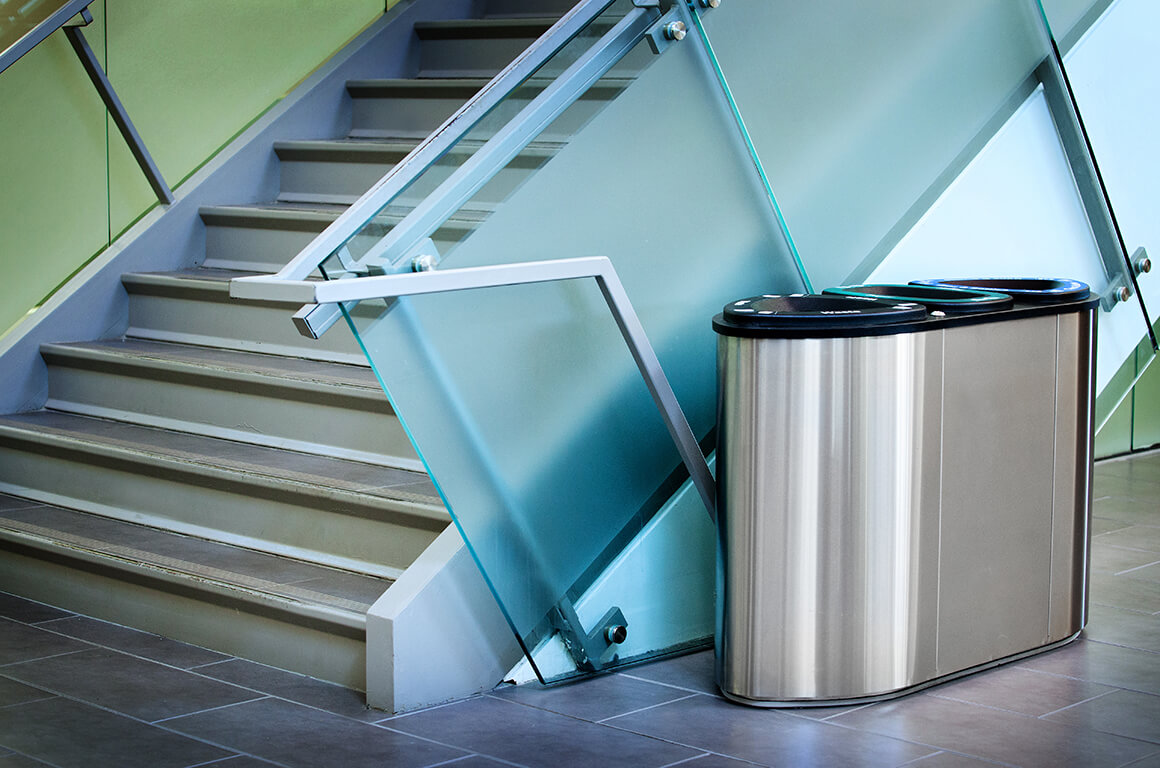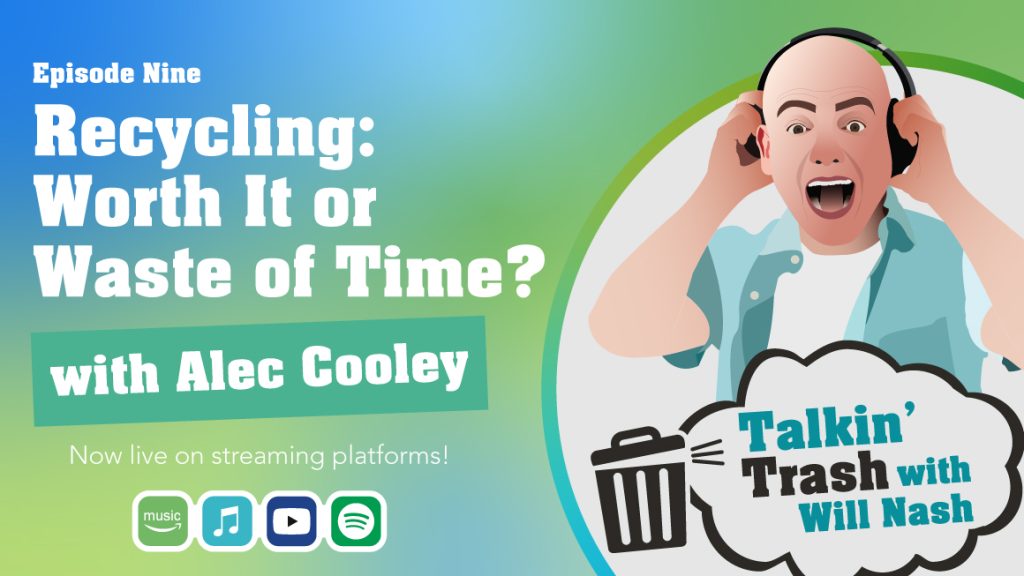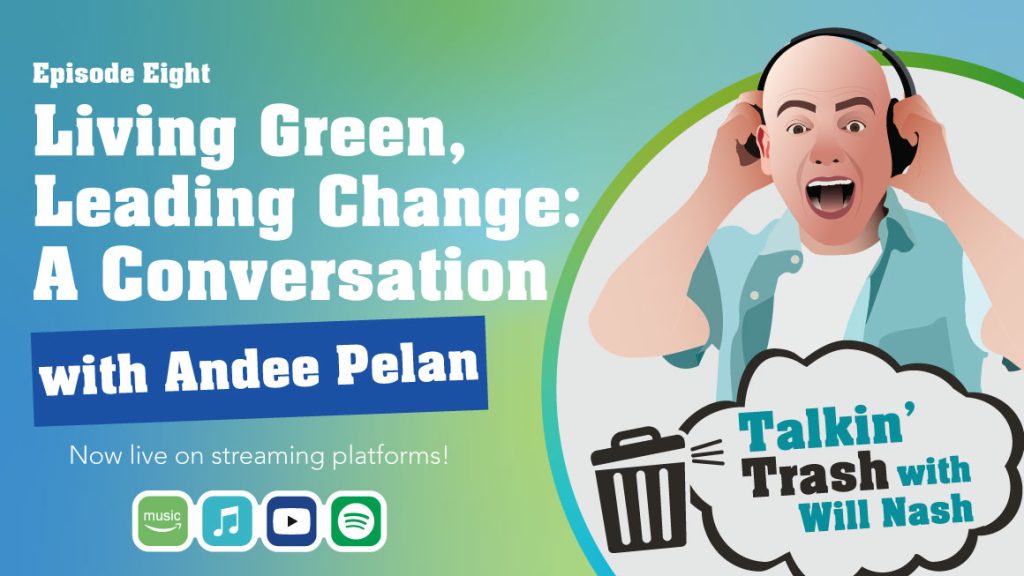For more information on how to build an exceptional recycling program for your Janitorial Services, click here.
Whether your facility already has a recycling and waste management program or you’re considering one for the first time, it’s worth making it work well—for both you and your client. You put in the effort to keep the building clean and well-maintained. A well-designed waste management program can make your job easier, more efficient, and more beneficial for everyone involved.
Many organizations have already taken steps in the right direction: adding recycling and organics streams, standardizing waste processes, and making them easier to navigate. Getting staff and visitors on board with a clear, effective system can lead to significant improvements. Here’s how.
Impact on Custodial Staff
Making changes to the waste management program doesn’t just benefit the environment—it has direct advantages for janitorial and custodial teams too. Consider these enhancements:
- Choosing containers sized appropriately for each area means fewer trips for collection and fewer large items being tossed into the wrong stream.
- Placing containers in the right spots—where people naturally generate waste—ensures more frequent use and fewer overflow problems.
- Using bright colors and clear signage encourages correct use of streams, reducing contamination and the time spent by custodians sorting waste.
- Educating staff and visitors on how to use the system properly also cuts down on errors and messes.
- Considering ergonomics and ease-of-service when choosing bins helps protect custodial staff from injury and fatigue.
In short: when the system is designed with service and people in mind, custodial work becomes easier and more effective.
Economic Impact
Upgrading a waste and recycling program may require upfront investment—but it often pays off. Here are some of the economic benefits:
- Reduced waste removal costs. In many cases, diverting paper, plastic, and other recyclables from the primary waste stream can cut disposal bills by as much as half. While recycling collection has its own cost, the overall savings from lower waste volumes can offset—or exceed—it.
- Supports a healthy economy. Recycling isn’t just good for the planet; it’s also a job-creator. Industries that sort and process recyclables contribute to the overall economy by generating employment and reducing costs for waste generators.
- Value in recycled material. Many recyclable items still hold value and can be sold or reprocessed. This helps create a circular economy and provides another cost-saving opportunity.
- A cleaner, more appealing facility. With more and better disposal options, staff and visitors are less likely to leave trash improperly. That means fewer cleanup tasks, better aesthetics, and overall less strain on maintenance staff.
When it comes down to it: a smart waste program can boost your client’s budget, your operational ease, and the facility’s visual appeal.
Social Impact
Facilities that adopt robust waste and organics programs also benefit socially—both within the organization and in the broader community. Some of these impacts include:
- Demonstrating green practices sends a strong message: you care about the environment.
- That message can empower both employees and guests to make greener choices in their personal lives.
- Waste and recycling programs generate more jobs than traditional disposal, signalling commitment to community sustainability.
- When people see recycling happening (and happening well), they’re more likely to participate themselves—and to respect the cleanliness of shared spaces.
- Providing clear, accessible disposal options means visitors and staff have fewer excuses not to sort properly.
Ultimately, a strong program builds community, pride, and responsibility—two benefits that go far beyond cost or diversion numbers.
Environmental Impact
The environmental gains of recycling are well known—but they’re worth repeating, especially when paired with organics collection. Here’s what happens when you make these improvements within your facility:
- Recycling reduces pollution from waste. Plastics and other materials in landfills can release harmful chemicals and greenhouse gases.
- It also reduces the demand for virgin raw materials, helping preserve natural habitats and reduce habitat destruction.
- Recycling consumes far less energy than manufacturing from scratch—another win for resource conservation.
- When you add organics to the mix, you gain even more: diverting food and green waste helps reduce methane emissions (a greenhouse gas far more potent than CO₂), prevents leachate (toxic runoff from landfills), returns nutrients to soils, improves soil’s ability to retain water, and reduces runoff.
While one facility alone might feel like just a drop in the bucket, the ripple effect is real. By setting a standard, you influence guests, employees, and other organizations who enter the space. A well-managed program becomes a model for sustainability both inside and outside your facility.
As you go forward with your improvements, remember: every step counts. Tailoring your program to your facility’s specific needs, educating users, choosing the right containers, and tracking performance are all part of making a real difference. We’d love to hear your stories of challenge and success so that we all continue learning and improving.
TL;DR — Key Takeaways
- A well-designed waste and recycling program benefits custodial staff, making their work easier, safer, and cleaner.
- It can reduce disposal costs significantly and support a stronger, circular economy.
- Such a program builds positive social impact—by engaging staff and visitors, promoting green behaviour, and reinforcing community values.
- The environmental advantages are substantial: lower pollution, energy savings, reduced greenhouse-gas emissions (especially when organics are included), and healthier ecosystems.
- Even one facility’s improvements matter—because good practices ripple outward to influence behaviour and expectations beyond just your walls.



